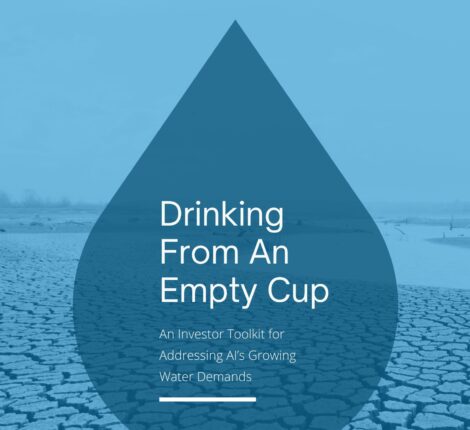Our CEO’s Q1 2022 Letter to Clients
Our View
Many years ago, during a rainstorm, I ran outside to pick some tomatoes from my garden and, while doing so, was suctioned into the wet, mucky soil. Worried about my meal prep (and my boots!), I pulled my feet out of my boots, jumped aside onto solid ground, and then leaned over and carefully pulled each boot out of the mud.
We are in the midst of doing the same with your portfolio. This mucky mess of war, inflation, and rising interest rates has had a lousy impact on your historically fresh, ripe portfolio[1]. Fortunately, our many years of solidifying our approach to portfolio management have given us practice jumping in and out of the economic and market muck, though it is never easy.
To that end, we trimmed equities in January, brought equity exposure down below target in February, bought short-term treasuries with the profits, and periodically purchased bits of stock that we felt were well-priced throughout the quarter. We are paying close attention to capital gains because we are not at all convinced that this will be an “up” year for either the stock or the bond markets, and we want to balance realized gains and losses as much as possible[2]. We have been meeting multiple times each week to assess market and sector volatility and to strategize about the buy list, keeping in mind our long view and the fundamentals of the companies we own as we watch the market bounce around. Having been through several down markets in the last 40 years of our time in finance, we are cautious in the midst of interest rate rises, interest rate declines, wars, policy shifts, and inflation. Our goal is to stand on solid ground, even during this rainstorm.
Economic Update
We often remind you (and ourselves!) that the stock market is not always in sync with current economic reality, nor does the volatility or the direction of prices always have predictive value. This is particularly true in the turbulent times that we are witnessing during the first part of 2022, with a multitude of factors affecting economic activity. The recent uptick in COVID cases in China is the worst outbreak since early 2020[3], and decreased factory activity in China does not bode well for easing supply chain constraints across the globe. Meanwhile, the war in Ukraine has accelerated several crises that were already in the making, and the incremental fallout from the war has contributed to rising energy and food prices.
To address higher energy prices, President Biden plans to release one million barrels of oil a day from the Strategic Petroleum Reserve[4] between May and November, just after the United Nations warned in a report on April 4th that too much investment is going into fossil fuels and too little into the energy transition[5]. We believe this is an opportunity to be honest about our current reality. We must not underestimate the magnitude and degree to which our global economy relies on fossil fuels to function, nor can we ignore the fact that any path to a renewable future will involve the ongoing use of fossil fuel. In short, we have an addiction that will be tough to break.
The war in Ukraine will result in a global food shortage, as Ukraine is one of the world’s largest exporters of corn, wheat, and sunflower oil[6]. While countries in Northern Africa and the Middle East are most dependent on these food supplies, Ukraine’s exports help to feed billons of people and animals around the world. And let’s not forget that Russian is the largest supplier of fertilizer on the planet as well[7].
Higher energy and food prices are fueling inflationary pressures that were expected to subside this year, and oil, gas, and food disruptions and shortages are expected to continue. To combat inflation, the Fed has signaled its willingness to accelerate interest rate increases over the next several months, causing concern that it may inadvertently trigger an economic slowdown that could harm the labor market just as many lower-income Americans are finding higher-paying and more rewarding job opportunities.
Outside Investments[8]
In the financial world of investing, and even in the world of socially responsible investing, there are certain assumptions, theories, perspectives, and practices that tend to dominate the way we understand the economy and capitalism. These assumptions guide everything from managerial practices to economic growth projections. These ideas are so pervasive that it can be easy to forget that most of what we understand as economic “truths” are only a couple of centuries old. Furthermore, they are representative of only a slice of human history and have tended to feature only a subset of the population, typically men (and almost always white men), and to disproportionately benefit the few over the many. It’s time to open ourselves to the wisdom and practicality of other voices—voices that are in sync with natural systems, Mother Earth, and the human condition writ large.
We have been making a point of centering our Outside Investments research on voices from the edges, specifically the voices of women and people of color. Someone who has been especially formative for us is Sherri Mitchell, a Native American lawyer, author, teacher, and activist from Maine. We thought Sherri Mitchell, in her own words, would demonstrate what we can learn when we step outside the dominant Western framework and embrace different ways of knowing:
Indigenous knowledge recognizes the individuality of elements in the natural world and how they relate to a larger whole using traditional family kinship models as their scaffold. It does this without stripping away the individual value or attempting to force what is being seen into a larger body of generalized laws or theories. It simply recognizes the familial relationship and acknowledges that all life is both sovereign and interdependent, and that each element within creation (including humans) has the right and the responsibility to respectfully coexist as coequals within the larger system of life.[9]
May we all seek and find inspiration and guidance from voices like this (and may we all at least at times succeed in tuning out the roar of the likes of Bezos, Musk, and Trump!).
Shareholder Activism Update
For 2022 so far, NorthStar has filed nine shareholder proposals on a range of issues. We engaged with one company outside the shareholder proposal route as a follow-up to a prior engagement. As you may remember, when a shareholder files a proposal with a company, there are three possible outcomes: negotiation leading to a successful withdrawal (the company and shareholder come to a mutually agreeable resolution), omission (the company asks the Securities and Exchange Commission [SEC] for permission to omit our proposal from the annual meeting documents), or the proposal goes to a vote at the annual meeting.
NorthStar had one successful negotiation this year that allowed us to withdraw our proposal at PayPal[10]. This proposal, called “Assessing Inclusion in the Workplace,” urges the company to examine its unwritten norms and written policies that may promote systemic racism within company culture. In our engagements with companies on this issue, we focus heavily on the unwritten norms aspect of the proposal – norms such as the tendency to allocate “stretch assignments” to white employees over Black or Brown peers or require that Black and Brown employees prove themselves repeatedly (more than their white counterparts); whether employees of color feel the need to code-switch or suppress cultural identity to survive and thrive; and whether employees of color can find a mentor or sponsor at the same rate as their white peers. Companies may not have written policies that make the corporate ladder harder to climb based upon race/ethnicity or gender, but unwritten norms develop in ways that can be as damaging as – and more difficult to change than – written rules.
As a result of our engagement, PayPal has committed to enhanced disclosures about their DIEB (diversity, inclusion, equity, and belonging) practices that we feel are some of the best that we’ve discovered in our engagements. In particular, PayPal is taking a “groundwater” approach to systemic racism in company culture – hiring outside experts that are training employees to not solely focus on outcomes like increasing diversity hires, but really trying to uncover the pervasive nature of systemic racism. PayPal has also disclosed a commitment to create a new mentorship and sponsorship program for employees of color, to collect and disclose new data on employee retention disaggregated by race/ethnicity by 2024, and to continue regular dialogues with NorthStar on this issue. We plan to push them to begin collecting data on disciplinary action and employee usage of benefits disaggregated by race and ethnicity in order to dig deeper into why PayPal (along with nearly all other tech-heavy firms) continues to see abysmal representation of diversity in the highest ranks.
Only one company—Badger Meter[10]—challenged us at the SEC this year. Badger Meter argued that our proposal on board diversity had been “substantially implemented” because they had added one person of color to their board last August (their first in over a decade) and had produced a “report on board diversity” that, in our opinion, did not commit to any new action steps that could solve the persistent problem. After an extensive back-and-forth of legal letters, NorthStar prevailed over the company’s challenge. We were thrilled to see that the SEC would not allow the company to omit this proposal, and that shareholders would get to vote on the issue once again. When we cannot come to a resolution on an issue with a company, we believe that involving the greater shareholder base (through the annual vote) is an important way to keep the conversation going. With board diversity as well as many other topics, it appears that Corporate America strives to do the bare minimum needed but nothing further. We believe that companies should make enduring change – not simply adding one person of color and “calling it a day” but committing to introspection, honesty, and determination to improve. In our engagements with Badger Meter, we have not seen these sorts of improvements so we will continue to engage the company.
Lastly, NorthStar is happy to share two new or updated reports with our clients. Earlier this year we updated our Proxy Voting Guidelines[11]. This document is used by our staff to vote all client proxies and is updated annually. We revised the format and expanded the content this year and welcome any feedback you may have (feel free to email our Director of Shareholder Activism and Engagement, Mari Schwartzer, at mschwartzer@northstarasset.com).
In late April, we released our 2021-2022 Social Change and Activism Annual Report[12]. In this document, we go into much greater depth on our full range of activism activities for the 2021 reporting year, give further background on our philosophy and strategy for our activism, and go into detail on several Outside Investing projects. In this document, we also report on our recent engagement with Costco[13] to follow up on prior dialogues related to prison labor. We hope you find this report informative and, again, welcome any thoughts you have.
Sincerely,
Julie N.W. Goodridge
The forecasts, opinions, and estimates expressed in this report constitute our judgement as of the date of this letter and are subject to change without notice based on market, economic, and other conditions. The assumptions underlying these forecasts concern future events over which we have no control and may turn out to be materially different from actual experience. All data contained in this letter is from sources deemed to be reliable but cannot be guaranteed as to accuracy or completeness. All investments are subject to risk, including loss of principal. Past performance is no guarantee of future results. It is not possible to invest directly in an index.
FOR INFORMATION PURPOSES ONLY
This information includes a discussion of a number of companies and other financial market and social events. These opinions are current as of the date of this publication but are subject to change. The information provided herein does not provide information reasonably sufficient upon which to base an investment decision and should not be considered a recommendation to purchase or sell any particular security.
[1] Past performance is not indicative of future returns.
[2] The information provided herein does not provide information reasonably sufficient upon which to base an investment decision and should not be considered a recommendation to purchase or sell any particular security.
[3] https://www.cnbc.com/2022/04/25/chinas-capital-city-beijing-begins-covid-testing-in-business-district.html
[4] https://www.nbcnews.com/politics/white-house/biden-administration-weighs-releasing-1m-barrels-oil-day-reserves-rcna22363
[5] https://news.sky.com/story/climate-change-political-and-economic-madness-to-invest-in-fossil-fuels-warns-un-as-landmark-report-asks-us-to-change-lifestyles-12581311
[6] https://www.yahoo.com/now/120-billion-global-grain-trade-040108031.html
[7] https://www.cnbc.com/2022/04/06/a-fertilizer-shortage-worsened-by-war-in-ukraine-is-driving-up-global-food-prices-and-scarcity.html
[8] Outside Investments are privately placed with various types of entities, as described above. In addition to the risks of equity, (which include, but are not limited to, changes in revenue, margins, earnings, dividends, cash flow, balance sheet, leverage, liquidity, solvency, legal matters, negative publicity, brand image, and general market volatility) and the risks of fixed income investing (such as credit risk, interest rate changes and the yield curve, inflation, default, monetary policy changes, government instability, and other risks), Outside Investments are typically illiquid.
[9] All We Can Save: Truth, Courage, and Solutions for the Climate Crisis, pp. 16-28.
[10] Specific holdings listed here were chosen to illustrate different outcomes of shareholder engagements. Case studies listed for illustrative purposes only. Past performance is no guarantee of future results. Information valid as of date of publication. The information provided herein does not provide information reasonably sufficient upon which to base an investment decision and should not be considered a recommendation to purchase or sell any particular security or to make any particular investment.
[11] https://northstarasset.com/wp-content/uploads/2022/03/NSAM-Proxy-Voting-Guidelines_2022.pdf
[12] https://northstarasset.com/wp-content/uploads/2022/04/2021-2022-Social-Change-and-Activism-Annual-Report.pdf
[13] Case study listed for illustrative purposes only. Past performance is no guarantee of future results. Information valid as of date of publication. The information provided herein does not provide information reasonably sufficient upon which to base an investment decision and should not be considered a recommendation to purchase or sell any particular security or to make any particular investment.




